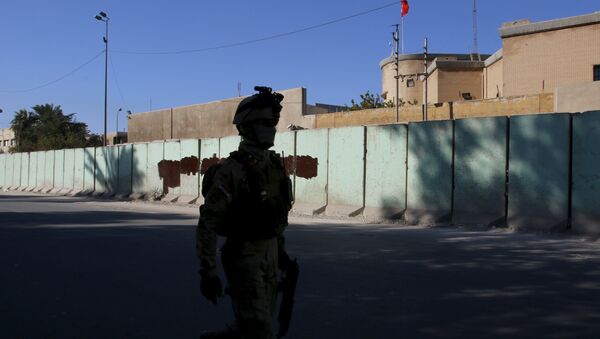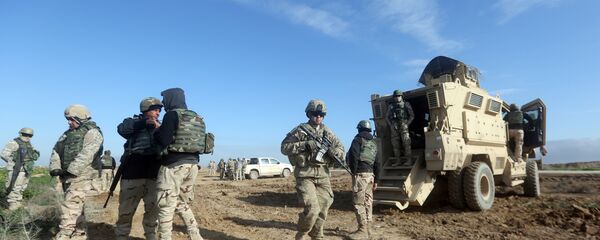On January 11, Daesh killed 18 people in a Baghdad shopping mall, the latest of several attacks the extremist group has carried out in recent months in Iraq’s capital city.
Preparatory work on the 186-mile wall began Monday, Lieutenant-General Abdul Ameer al-Shammari, head of Baghdad Operations Command, said in a statement published on the defense ministry website. When complete, the barrier will surround the city on all sides, he added.
"The security barrier around Baghdad will prevent terrorists from infiltrating the capital or smuggling explosives and car bombs to target innocent civilians," Shammari said.
Construction will start in the area of al-Subaihat, about 20 miles to the west of Baghdad, in order to isolate the city from Falluja, which is now under Daesh control.
Many districts in the Iraqi capital are already surrounded by concrete barriers built around 10 years ago to deter violence between Sunnis and Shiites. Some of those walls will be dismantled and used to build the new wall.
The barrier will also have a 6-foot-deep trench alongside. Surveillance cameras, explosives detection devices and towers will also be installed.
The walls and barriers around the “Green Zone” are expected to remain. Created by the US-led coalition that toppled Saddam Hussein in 2003, the heavily fortified zone now houses the government, parliament and many embassies, including those of the United States and Great Britain.
On Wednesday, roadside bombings in various parts of Baghdad and a drive-by shooting killed eight people and wounded 28 others.
According to UN figures, 490 civilians were killed and 1,157 were wounded last month in Iraq — those figures include federal police, civil defense forces and personal security details. Baghdad was the worst affected, with 299 civilians killed and 785 wounded.



